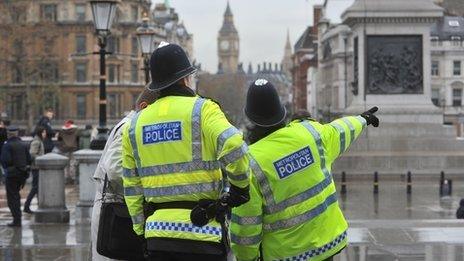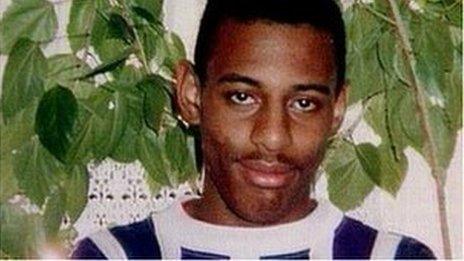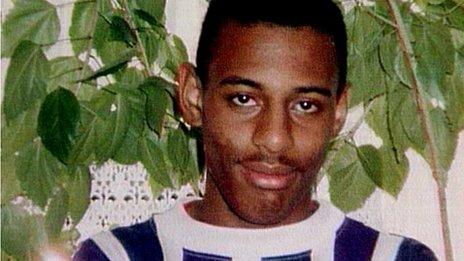Met Police corruption probe papers shredded 'over two days'
- Published

The secret investigation into corruption within the Metropolitan Police was named Operation Othona
New details about the mass shredding of documents relating to a corruption inquiry in the Metropolitan Police have been uncovered by BBC News.
It is understood the inquiry produced a "lorry-load" of material and that the shredding took place over two days.
The destruction of the files was highlighted by the barrister Mark Ellison QC in his review, external of the Stephen Lawrence murder investigation.
The Met said it currently had "little detail" on the circumstances.
In a statement, the force said information on the shredding came from a former employee and that officers intended to discuss the issue with them further.
Teenager Stephen Lawrence was murdered in a racist attack in Eltham, south-east London, in 1993.
Mr Ellison's report found evidence that a detective involved in the original murder investigation had acted corruptly, and that material had been withheld from the subsequent Macpherson Inquiry into the police's handling of the case.
The material that was shredded was from a broader, top-secret investigation into possible police corruption that began in 1993 and came to be known as Operation Othona.
'Scant' information
The Ellison report, published earlier this month, said it needed to see the Othona files to investigate possible links with the Lawrence case, and to establish what was known about police corruption at the time of the Macpherson Inquiry in 1998.
Some computer files relating to the Othona operation were found on a hard drive in a cardboard box in the Met Police's professional standards department in November 2013.
But hard copies of the intelligence were missing. The Ellison review was told there had been a "mass shredding" of them in 2003.
Operation Othona is understood to have generated so much material that it is highly unlikely it could have been destroyed by mistake.

Teenager Stephen Lawrence was murdered in a racist attack in Eltham, south-east London, in 1993
One source said there had been a "lorry-load" of documents, photographs and videos.
The paperwork would have included surveillance logs, listening device records and informant contact sheets.
Scotland Yard said in a statement that officers gathering material for the Ellison report were told that a number of documents had been shredded over a two-day period in 2003.
The force later added: "The MPS were informed by a former employee on 4 February 2014 that in 2003, two members of staff were tasked to shred a quantity of documents that related to corruption enquiries.
"The information supplied by the witness was scant but the MPS felt it necessary to pass it on to Mr Ellison's review - on 5 February the information was shared with Mr Ellison.
"MPS officers now intend to meet with the witness to clarify their account and obtain any further information that may assist future enquiries.
"At this time the MPS have little detail on the circumstances that led to the shredding or the exact documents destroyed."
Former officers and staff with experience of record keeping in the Met at the time have told the BBC the mass shredding was disturbing, bizarre and suspicious.
It has bolstered the possibility that the material was deleted because it contained information that implicated officers or damaged the force's reputation.
'Chaotic' record keeping
They also said it was highly unusual to destroy paper records of recent investigations - not just because of the value of the information but also because of the legal requirements to disclose documents to the defence, should anyone be prosecuted.
Theories that the files were shredded as part of a drive to free up storage space or comply with data protection rules are also thought to be unlikely.
However, the ex-officers could not rule out an innocent explanation for the shredding.
They said the force's record keeping was "chaotic" and it was possible copies of the documents existed, but had simply been mislaid.
In 2009 it emerged that the Met Police had lost the case file of a suspected rapist, Wendell Baker, which contained the victim's statement and details of supporting evidence.
Baker was eventually prosecuted - and convicted - but only after his solicitors were ordered by a court to hand over their copies of the file.
- Published6 March 2014

- Published6 March 2014

- Published6 March 2014
